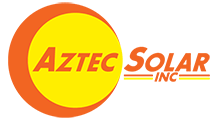It pays to go solar.
By making the switch, customers will meet every energy demand within their home or business, cut on energy costs and help save the planet.
Solar energy frees customers from the unpredictability of up-and-down utility prices and power shutdowns. Solar energy is a savvy alternative to traditional utility because it’s affordable, reliable and helps cut back on harmful greenhouse emissions.
The cost for a full solar panel application and how much it will save you depends on a number of factors. Tax incentives and project size determine the final costs and savings of a solar electricity system.
Here are some of the solar incentives you should know about.
Investment Tax Credit
The federal Investment Tax Credit for solar projects was recently extended, offering a significant tax break to both residential and commercial customers.
Implemented in 2006, the solar credit will save taxpayers 26 percent on solar projects through 2021 and 2022. In 2023, the tax credit is reduced to 22 percent before expiring for residential taxpayers the following year. It will stay in place for commercial customers at a 10 percent rate in 2024.
Since its inception, the tax credit fueled solar industry growth by more than 10,000 percent.
Net Energy Metering
Net metering enables solar customers to ship off excess generated power back to the power grid in exchange for credit.
This is just another way solar customers will save on their monthly energy bill. The credit for excess energy will reflect the rate the customer would have paid if consuming the same amount of energy.
In order to participate, solar customers must install a solar electricity system that’s sized to meet current building demands.
Property Tax Exclusion
There’s no need to worry about new property tax assessment after installing a solar electricity system, which is considered new construction.
Typically, new construction at a residence triggers a reassessment of property taxes, which can lead to a larger tax bill.
The state’s taxation code features the exclusion for qualifying solar projects, and is valid through 2025.
If you are interested in getting started with residential or commercial solar, contact us today!



Recent Comments